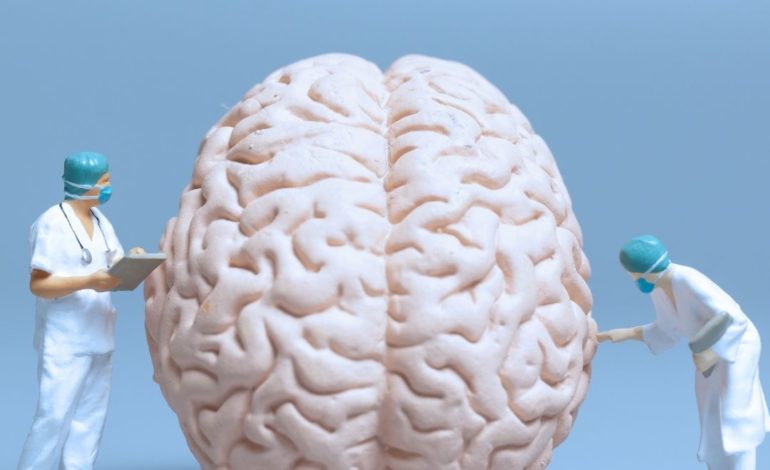National Prevention Week (NPW) is a national public education platform bringing together communities and organizations to raise awareness about the importance of substance use prevention and positive mental health.
As of 2019, nearly 1 in 5 adults in the United States lived with a mental health disorder, according to the National Institute of Mental Health, yet about 55 percent of adults with a mental health disorder did not receive treatment from a mental health practitioner. Not enough people seek therapy for a diagnosed mental health disorder, let alone seek therapy as a preventative measure.
Often when we think of “therapy,” we assume that it is used to treat existing mental health disorders or addictions. People often go to therapy to seek help for their negative thoughts and behaviors impacting their daily lives. Additionally, people go to therapy to seek help for interpersonal relationships, specifically romantic relationships, and relationships with family members, in hopes of rebuilding relationships that may have suffered. In other words, many people assume that therapy is for people who are struggling or who are going through a crisis, something that is reserved for only the darkest moments. But what if people realized that even if they are incredibly well-adjusted, healthy, and successful, there is always room for growth, more potential, and more you can learn about yourself and your relationships?
In the same way, individuals visit physicians when they are not sick. They might want a checkup, test, or advice. Therapy is not exclusively for individuals who have a diagnosable mental health disorder. Good therapists listen to us without judgment and teach us how to solve problems in a healthy way so we can live happier lives. Isn’t this something we all want, whether we seek help or not?
A therapist is like a personal trainer for your mind and your relationships.
Therapy as a preventative measure
Take your vitamins, brush your teeth, exercise regularly, eat less processed foods, decrease sugar and sodium intake, drink more water, adopt a healthy sleep schedule, and visit your doctor and dentist for regular checkups are all preventive wellness habits that we try to practice regularly in hopes of preventing something negative from happening to our physical health and overall well-being. We try to put time and effort into practicing healthy behaviors and decisions so we can live a long healthy life. But it seems that many of us do not take this approach when it comes time to our mental health. Although many individuals go to therapy as a treatment after they become diagnosed with a mental health or substance use disorder, therapy can often be beneficial as a preventative and management tool to improve your life, feel better about yourself, reach your full potential, and teach you new ways to think about yourself and understand any potential that is holding you back. Therapy can also be seen as a way to prevent the development of a mental health or substance use disorder, as often mood disorders and addiction develop due to unresolved, unhealthy underlying triggers. Therapy can help with the following:
- Develop new coping mechanisms
- Enhance deductive reasoning
- Provides an opportunity for experimentation
- Provides meaningful insight into life
- It helps to explore the mind
- Provides room for self-development
Why can’t I just talk to my friends and family?
Many of us rely on our closest loved ones to help us when we are treading deep waters or for general advice, and although friends and family may want to help, often they may not be able to help, here’s why:
Your friends and family have their own lives. Often when we come to them for advice, they may not be able to give us their undivided attention because they have to focus on the baby, a work project, or something else that is begging for their attention. We cannot blame them as we all live very busy lives. A therapist can offer you undivided attention. Additionally, your friends and family most likely are not objective or unbiased. Since they are your loved ones, they most likely will be on your side, whereas a therapist will give you an unbiased opinion. A therapist is someone who can piece together correlations and causations for your behaviors and feelings that you or your friends may not have realized otherwise.
Going to therapy regularly can be a great way to take care of your mental and emotional health. In addition, it can help you strengthen your interpersonal relationships and adopt the tools and coping skills needed to reach your full potential in many aspects of your life, including your professional life and personal life.
AKUA Mind and Body is a full-service addiction and mental health treatment center with multiple locations across California. We believe in treating the individual and not just the disorder and have a team of mental health experts who have experience in treating those who have mental health disorders or substance use disorders. No matter your range or severity of symptoms, our treatment staff works together to find the best-individualized treatment whether it’s through our residential program, our outpatient program or through our virtual program. We have something that can work around your busy schedule. Our team at AKUA Mind and Body wants to help you navigate through this challenging journey and seek out a healthy and successful recovery.




